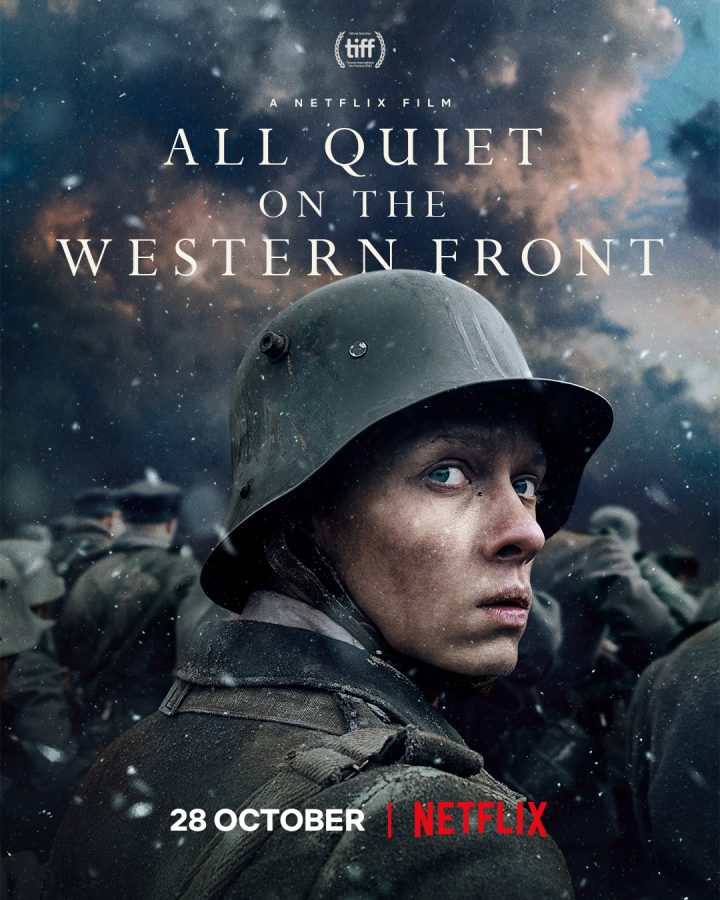Movie Review: All Quiet on the Western Front
On Friday, October 28, Netflix released “All Quiet on the Western Front,” the first movie adaptation in almost a century of the book of the same name. The novel, originally published in 1928 by German World War I veteran Erich Maria Remarque, tells the story of Paul Baumer, a soldier during the war, and has been hailed as one of the greatest anti-war novels of all time. Although Netflix’s new movie adaptation takes a broader approach, it preserves the message of the novel.
From the get-go, it is clear that there is nothing good about the First World War. Men run out across gray, harrowed landscapes, falling and screaming and dying and killing. There is nothing heroic or romanticized about their actions. For all their brutality, no one on either side of the conflict accomplishes anything. They gain no ground and die horrific deaths in the attempt, followed by an intense, punchy score often reminiscent of the “Jaws” theme, to similar effect. As someone who can’t stomach gore, this film was difficult to get through — it is one of the most brutal depictions of the First World War I’ve seen in a while, even more so than 2019’s “1917.”
The film doesn’t follow Paul’s inner experiences and thoughts as closely as in the book, nor does it stick to the same timeline — most of the events happen in the final days of the war. Segments of life on the front are interspersed with the dealings of the military elite negotiating its end, hoity-toity and bourgeois compared to the bleak and perpetual suffering of the soldiers.
Despite these differences, the core of the adaptation is true to the book — a total condemnation of war and intense exploration of its mental and physical toll on the soldiers who fight.
I don’t recommend this movie in the sense that it’s an enjoyable experience, but because of its power and themes which are, unfortunately, just as relevant today as they were when the events of the film took place.



